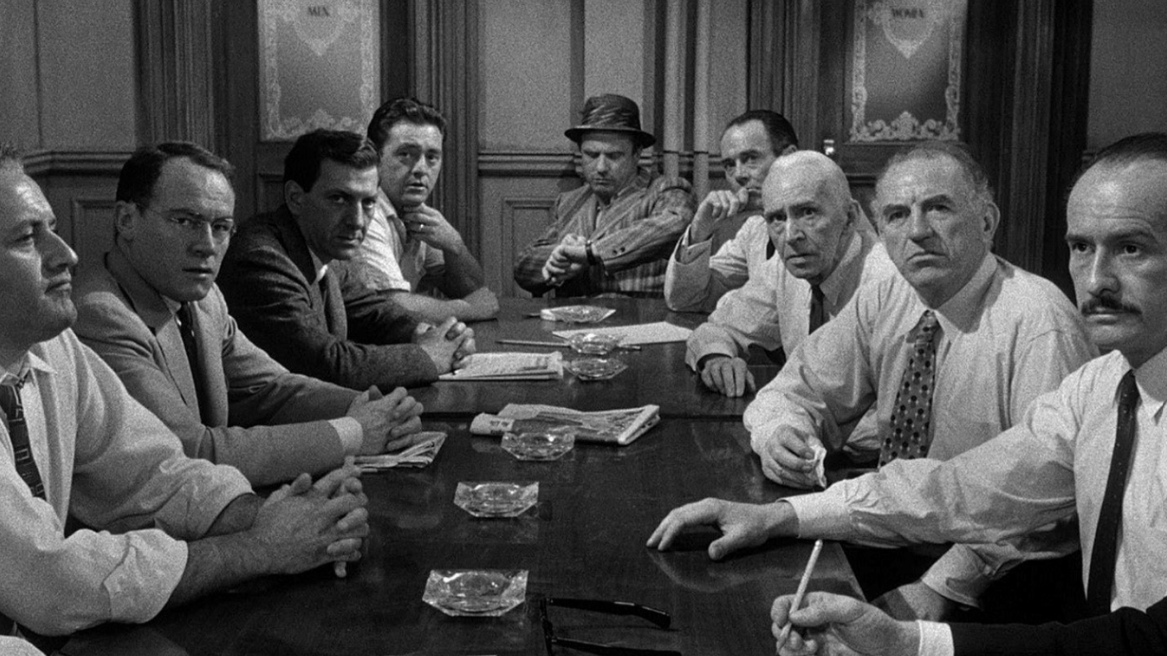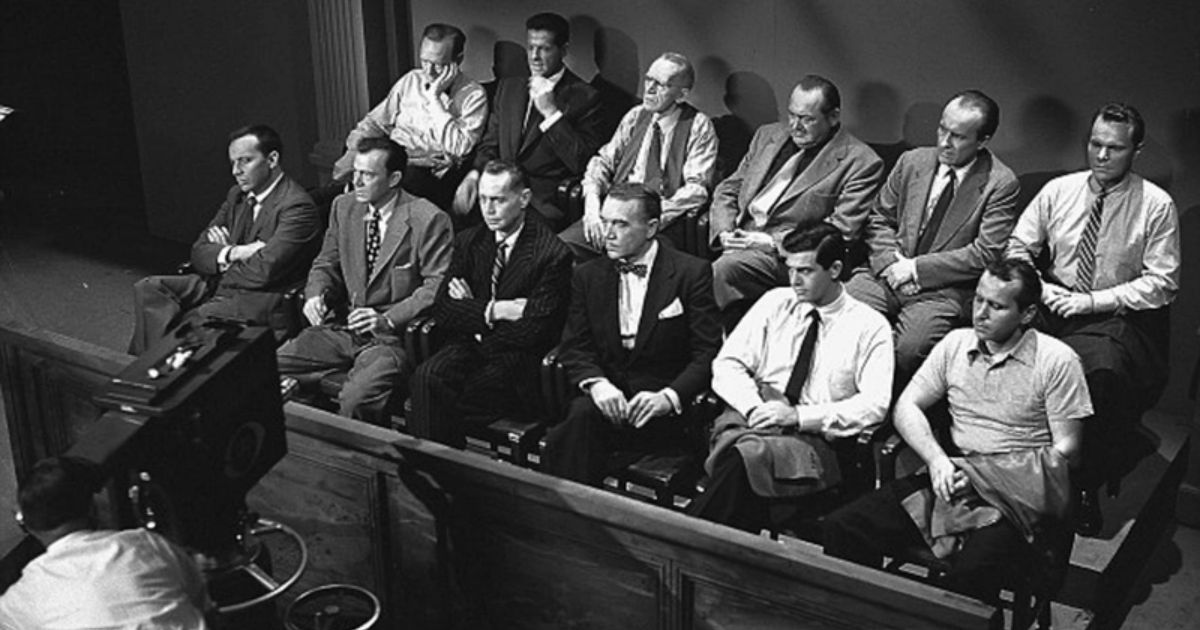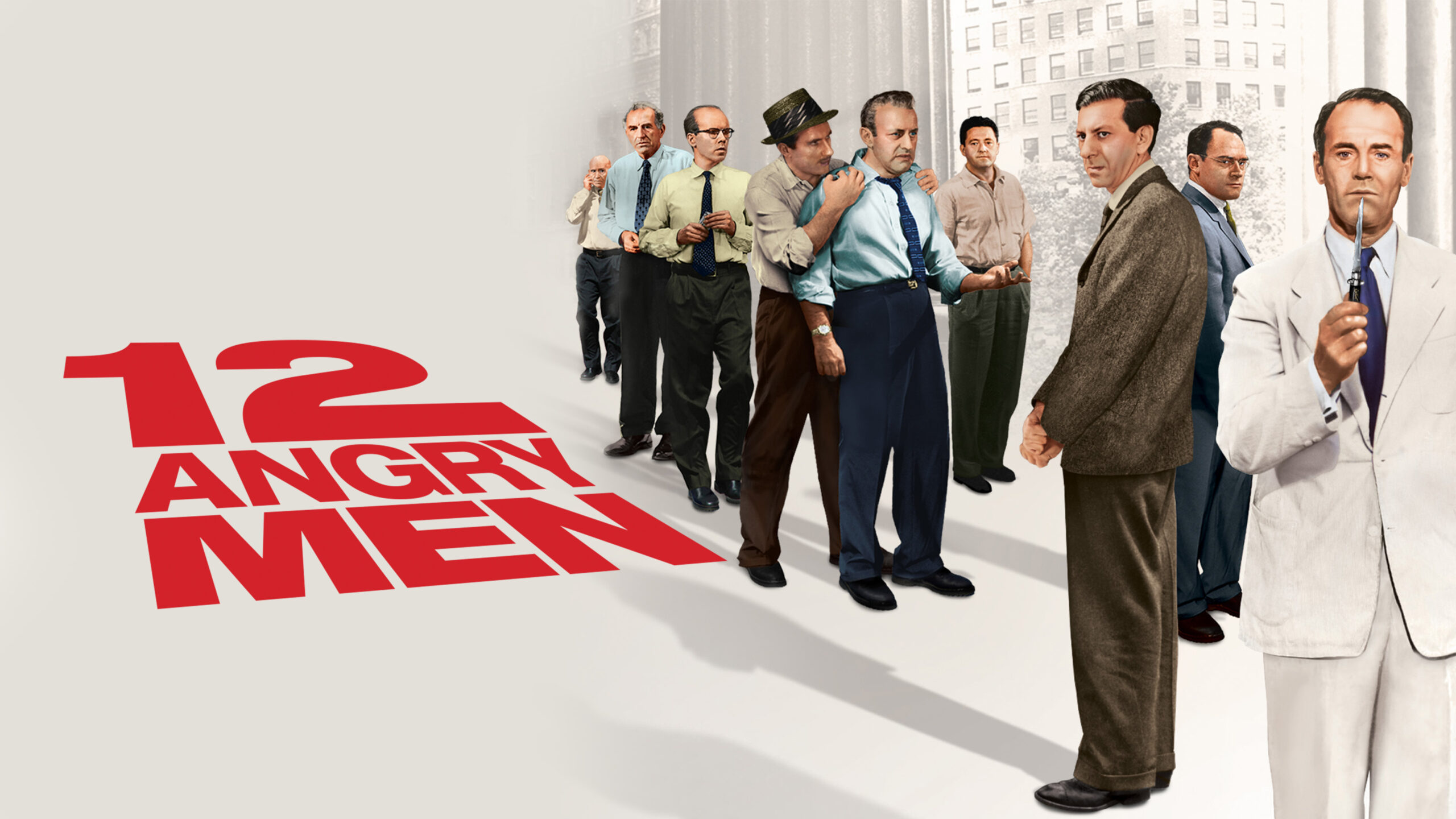12 Angry Men (1957) is a classic courtroom drama that explores themes of justice, prejudice, and the importance of critical thinking. Directed by Sidney Lumet and based on a teleplay by Reginald Rose, the film is set almost entirely in a jury deliberation room, emphasizing the intense character interactions and moral dilemmas at the heart of the story.
Plot Summary
The story begins in a New York City courthouse, where a jury of 12 men is tasked with determining the fate of a teenage boy accused of murdering his father. The boy faces the death penalty if found guilty. The evidence against him seems overwhelming: an eyewitness claims to have seen the murder, another heard it happen, and the boy’s alibi is shaky at best. The judge instructs the jury to deliberate and reach a unanimous verdict.

As the jurors convene in a cramped, sweltering room, a preliminary vote is taken. Eleven jurors quickly vote “guilty,” confident in the evidence, but Juror #8 (played by Henry Fonda) casts a dissenting “not guilty” vote. He explains that he is not convinced beyond a reasonable doubt and believes the boy deserves a fair discussion before his life is decided.
Over the course of the film, Juror #8 carefully examines the evidence, challenging the assumptions and biases of the other jurors. Through intense debates, he exposes flaws in the prosecution’s case:
The Eyewitness Testimony: The woman who claimed to have seen the murder through a passing train likely couldn’t have witnessed it clearly because she wore glasses but wasn’t wearing them at the time.
The Murder Weapon: The unique knife used in the crime is revealed not to be so unique when Juror #8 produces an identical one, suggesting it could belong to anyone.
The Alibi: The boy’s inability to remember details of the night in question is contextualized as plausible for a frightened teenager under stress.
The Ear Witness: An elderly neighbor claimed to hear the murder, but his testimony is questioned due to his hearing ability and the timing of the events.
As the deliberations progress, personal prejudices, assumptions, and tempers flare among the jurors. Some hold onto their “guilty” vote due to bigotry or emotional biases rather than evidence. Gradually, one by one, they are swayed to consider the possibility of reasonable doubt, primarily through Juror #8’s persistence and logical arguments.

Climax and Resolution
By the film’s end, Juror #8 and his reasoning win over the others. The final holdout, Juror #3, is revealed to have been projecting his own strained relationship with his son onto the case. In an emotional breakdown, he reluctantly changes his vote to “not guilty.” The jury unanimously decides to acquit the boy, upholding the principle of “innocent until proven guilty.”

Themes
12 Angry Men explores the dynamics of group decision-making, the dangers of prejudice, and the moral responsibility of jurors. It underscores the importance of standing firm in the face of popular opinion when justice is at stake. The film is celebrated for its sharp writing, powerful performances, and ability to remain relevant as a commentary on human behavior and the judicial system.




